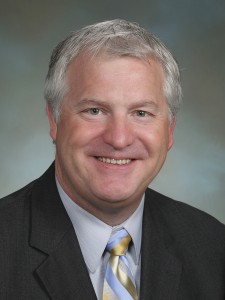
By JEFF MORRIS — COURTESY TO THE BELLINGHAM HERALD
We are very fortunate here in the 40th Legislative District to be home to a tremendous higher education institution in the form of Western Washington University. It is an economic driver and a source of accessible, high-quality college education for Bellingham, the surrounding area and the state as a whole. However, many in Olympia have taken Western and our other higher education institutions for granted during the past few years.
Western performs well above the national average in key measurements such as four- and six-year graduation rates, average time to degree and freshman retention. In Washington, it has outpaced the other regional institutions and performs competitively with the University of Washington and Washington State University. Its educational success has consistently landed it among the U.S. News and World Report list of highly ranked universities that operate most efficiently – meaning they are able to provide a high-quality college education using a minimal amount of money.
This success has come in spite of the fact that state funding for Western Washington University has declined by more than 40 percent in the past five years. That means that, instead of the state paying two-thirds of the cost of college degree, as it was in 2008, students and their parents are now paying two-thirds of the cost through tuition and fees. This shift has made Western less affordable and accessible at a time when a college degree is increasingly necessary to be competitive in our workforce.
These cuts have fallen particularly hard on Western due to historically low per-student funding levels. Western actually receives less funding on a per-pupil basis than any of Washington’s two- or four-year institutions. Compared to community colleges and the average of the other regional institutions the difference is more than $500 for each student, with an even greater gap for the research institutions.
We shouldn’t be punishing success – we should be doubling down on it.
The state must reinvest in Western’s successful model, with a specific focus on programs that will train students for the jobs of the emerging economy. The university already has two proposals queued up that would take ambitious steps towards that goal.
The first is the proposed Institute for Energy Studies. Rather than an increasingly arbitrary focus on a specific discipline of engineering, type of science, or school of economics, a degree from the Institute for Energy Studies would provide the interdisciplinary mix of skills that students need to excel in the new energy economy. Many of Washington’s top employers are already lined up behind the proposal: Boeing, Alaska Airlines, Puget Sound Energy, McKinstry and Global Smart Energy, just to name a few.
The cost of the institute, estimated at $1.9 million would be marginal compared to the tremendous dividends it would generate in revenue from newly employed energy field auditors, renewable energy project managers and clean technology manufacturers.
The second targeted investment would be transforming Western’s existing engineering technology degrees into full-fledged, nationally accredited engineering programs. In the next five years more than half of Boeing’s workforce will be eligible for retirement, and by 2018 there will be 78,000 engineering jobs in our state. Right now those jobs are being filled by graduates from other states or other countries – if they are being filed at all. The $4.8 million investment would allow Western to meet that need by training our students for those positions instead.
Washington’s growing renewable energy manufacturing sector would be thrilled to have local, well-qualified college graduates who understand the real-world applications of their instruction as soon as they enter the workforce. So would the high-tech business competing with Silicon Valley, and the aerospace companies that are facing pressure both nationally and internationally. This type of talent pool could also be a deciding factor in encouraging other businesses to move or expand to Washington.
Our state has fared better than most others during the past few years because of the talented workforce that powers our high-tech industry sector. Demand for high-skill workers has been outpacing supply for several years, however, and our companies are desperate for more science and engineering graduates.
We will not be able to meet this growing need if we continue to cut money from our higher education system and penalize institutions such as Western that make the most of limited resources. Investing in our universities and empowering them to reinvent the traditional higher education model is critical to expanding our economy and getting Washingtonians back to work.
Source: State Rep. Jeff Morris, Bellingham Herald, April 16, 2013.